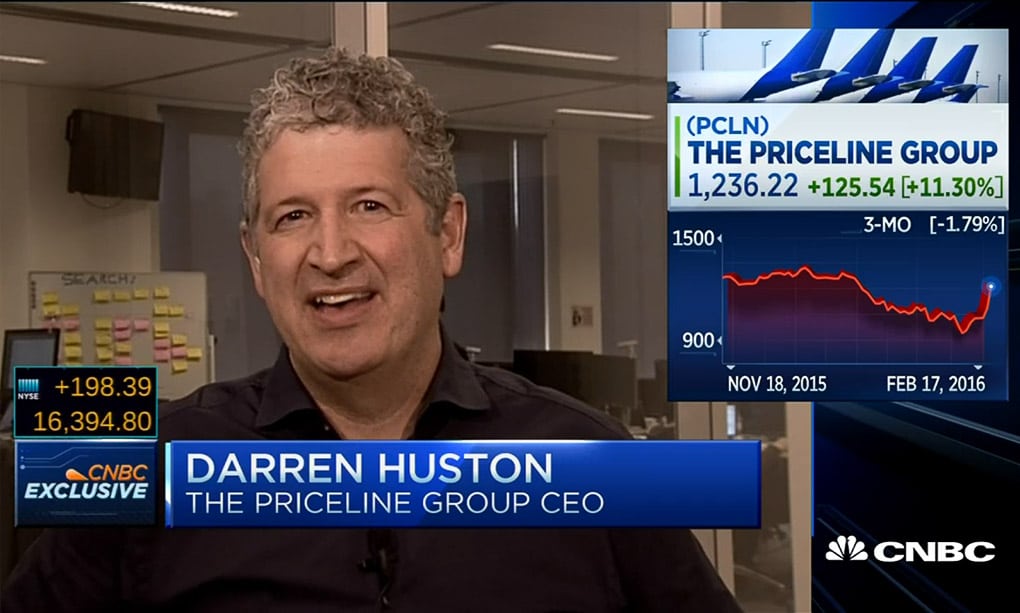Priceline Group CEO: We Have Double the Hotel Bookings of Expedia

Skift Take
Expedia's acquisitions versus the Priceline Group's "competitive moat." Rock, paper, scissors. It's an interesting contest and in the $1.4 trillion global travel market, both companies can be winners. Expedia is trending upward and Priceline is showing strong growth, as well.
While Expedia dominated headlines with its more than $6 billion worth of acquisitions in 2015, the Priceline Group needs to win the narrative back and CEO Darren Huston made his case about his company's competitive advantages.
"Our capabilities and scale in partner acquisition, customer experience, and efficient demand generation plus our large installed base of accommodations and loyal travelers give the Priceline Group a competitive moat that is deep and wide," Huston said. [For Huston's elaboration on these points, see excerpts from the Priceline Group's fourth quarter earnings call February 17 at the bottom of this post.]
If there were any doubts that Huston's comments were at least in part an answer to some of Expedia's gains, including Expedia's 39 percent fourth quarter growth in room nights sold, although they were pumped up by acquisitions, then consider this Huston zinger:
"Our customers made reservations for over 432 million room nights on Priceline Group platforms in 2015, over twice as many as our next biggest competitor," Huston said.
He added: "We don't take any competitor lightly, and we compete ferociously every day, continuously seeking a higher executional gear in every facet of our business."
Beyond all of the rhetoric from the Priceline and Expedia camps, we decided to compare some of their most important fourth quarter of 2015 metrics despite the fact that they are very different businesses. The Priceline Group is more hotel-oriented and derives more of its revenue from non-U.S. points of sale while Expedia Inc. offers a more well-rounded assortment of products, including a much bigger airline-tickets business, cruises and tours and activities.
Priceline and Expedia Q4 2015 Comparisons
Expedia Inc.
% Change
Priceline Group
% Change
Room Nights
52.8M
39%
99.1M
26.6%
Revenue
$1.7B
29%
$2B
8.7%
Gross Bookings
$14.9B
40%
$12B
13%
Adjusted EBITDA
$280M
12%
$790M
11%
Source: Expedia Inc. and the Priceline Group
Room Nights
Priceline indeed has a much larger hotel business than Expedia as the Priceline portfolio of companies, including Booking,com, Agoda and Priceline.com, generated 99.1 million room nights in the fourth quarter compared with Expedia's

